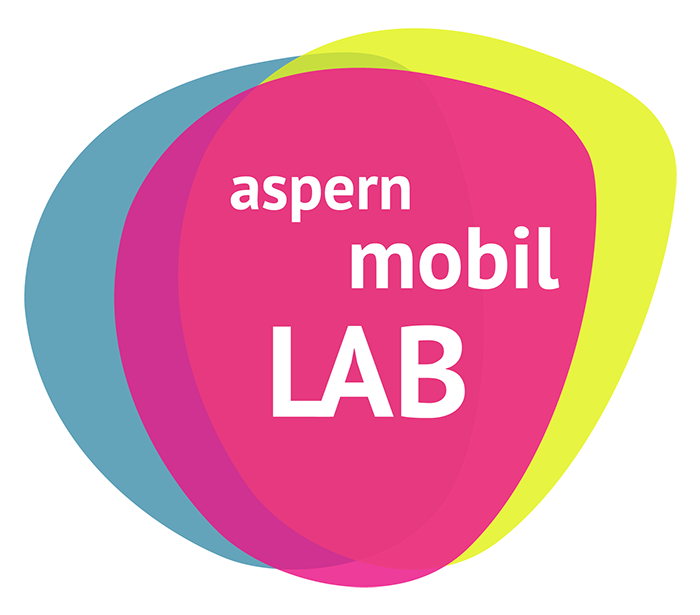How can residents, traffic participants and administrators work together to find a way to reduce traffic and improve the quality of life in their neighbourhoods? StreetForum develops free analogue and digital tools for communities to use in consensus building.
Lab Projects
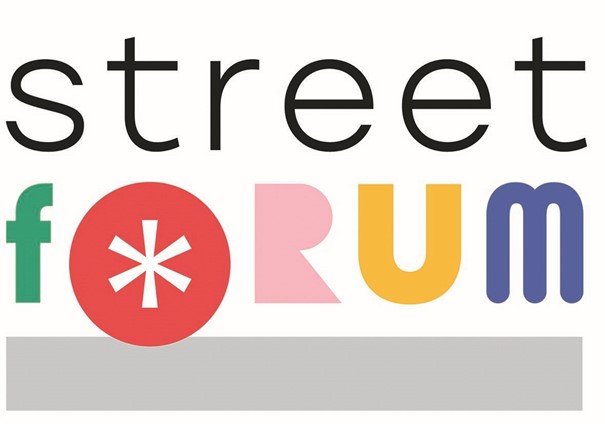
StreetForum
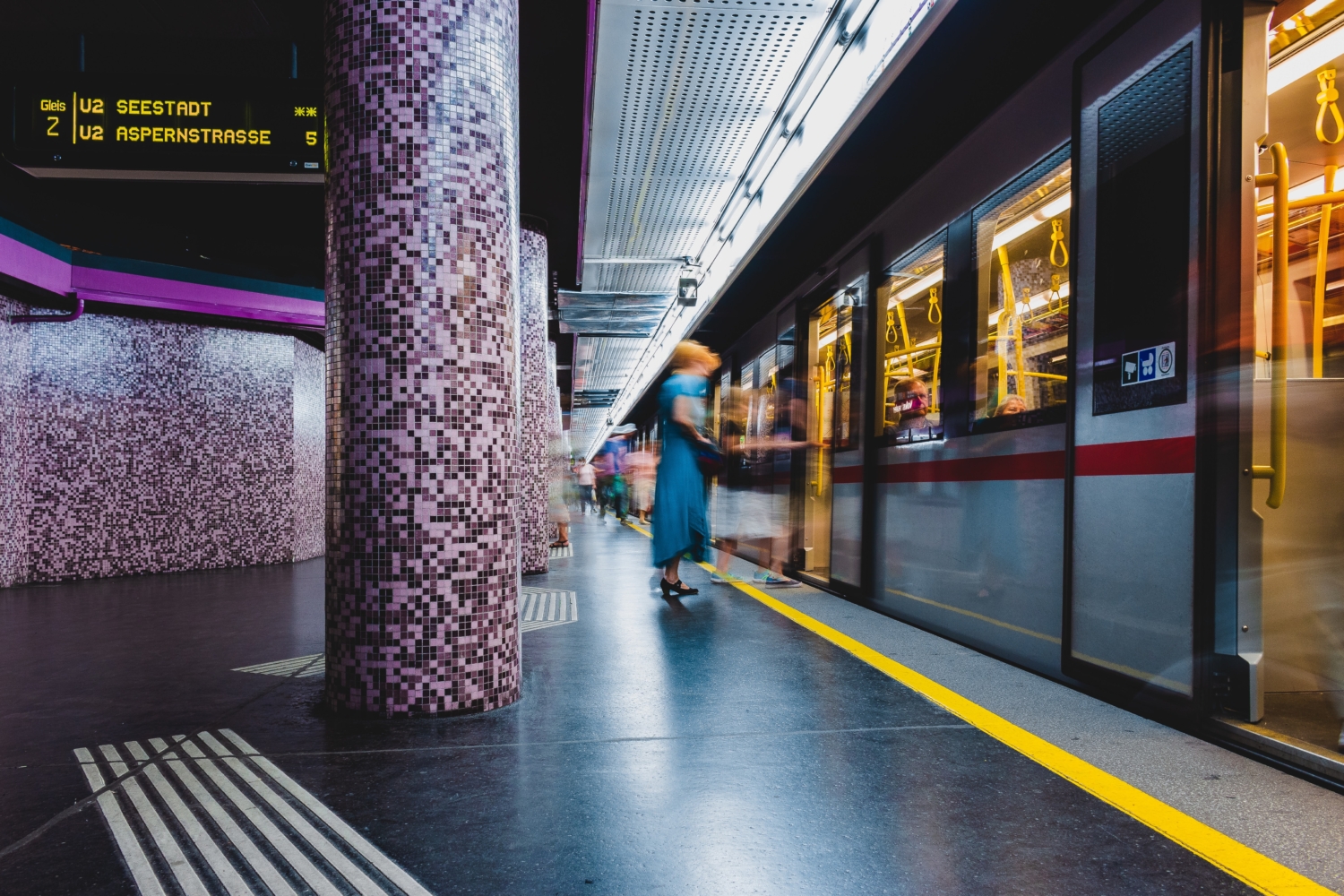
Mobility stories
The aspern.mobil LAB invites interested people – preferably people who live or work in aspern Seestadt – to give us an insight into their very personal mobility history and development within the framework of biographical interviews.
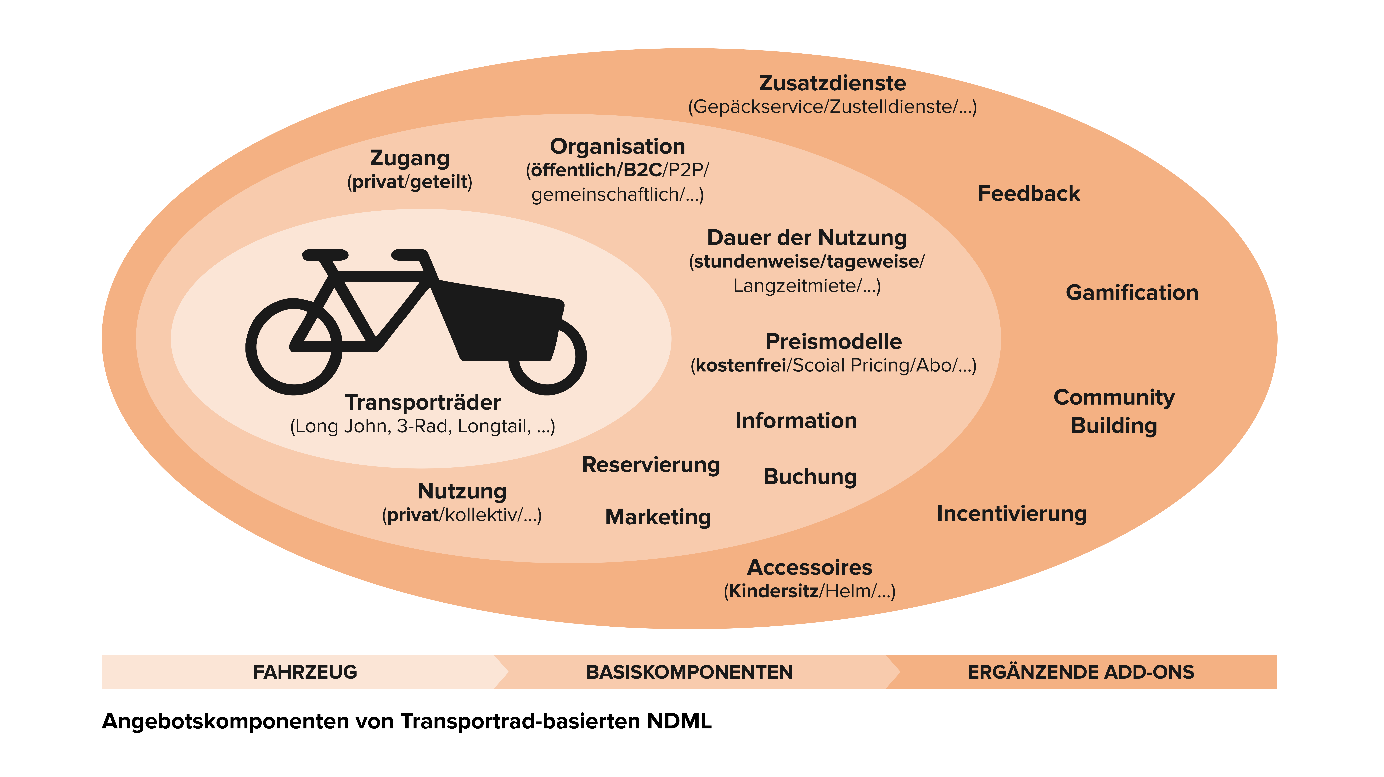
HAUSRAD
The HAUSRAD project aims to develop transport bike-based new mobility services. These could be, for example, new sharing services with new rental and pricing models.
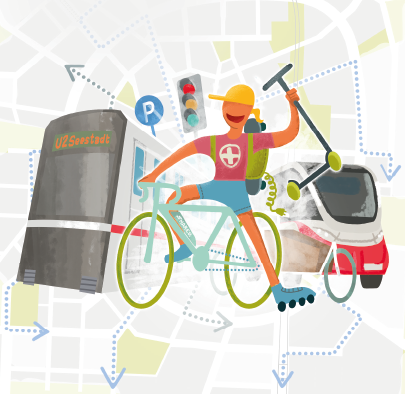
Mobility Advisory Service Seestadt
The Seestadt Mobility Advisory Service is a project of the TU Vienna funded by the aspern Mobility Fund, which informs and advises the residents of aspern Seestadt in matters of mobility and choice of modes of transport.
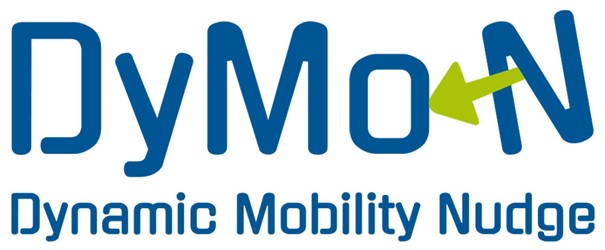
DyMoN
The project Dynamic Mobility Nudge (DyMoN) aims to motivate people to more sustainable, active mobility with digital “nudges” – away from the car and towards cycling, walking or public transport.
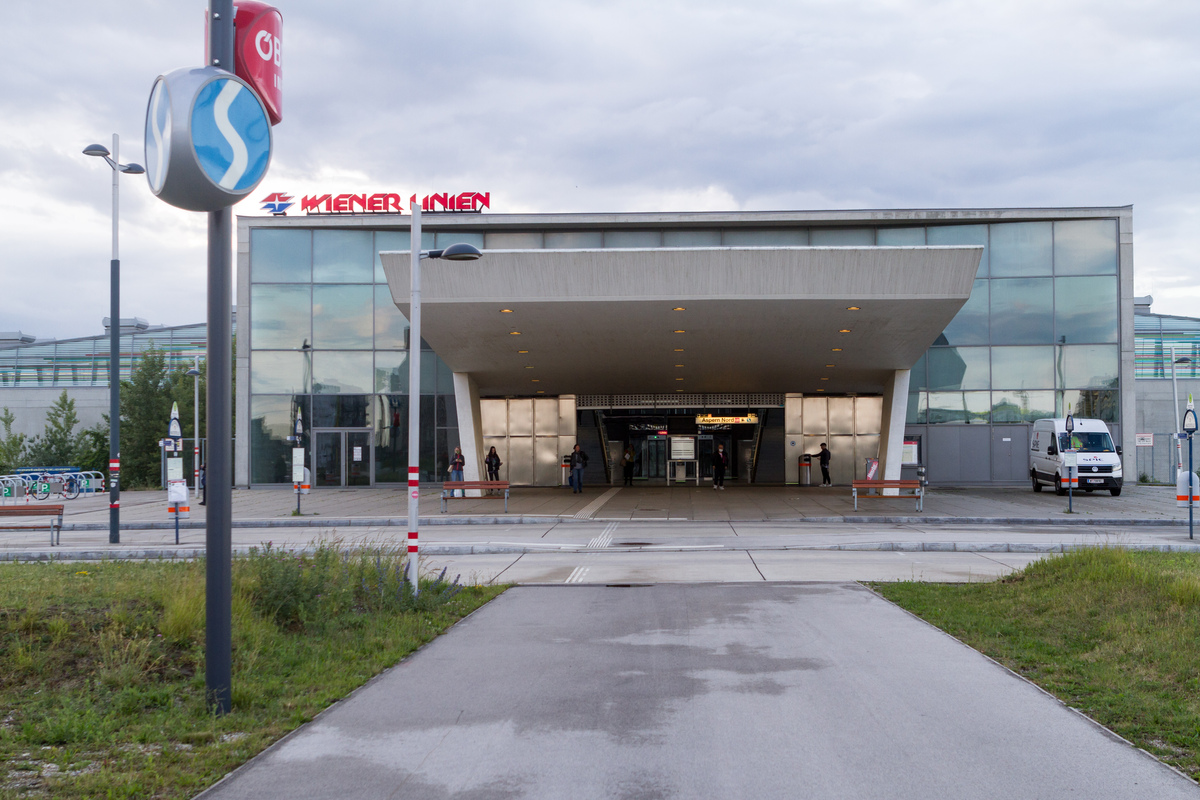
SmartHubs
The SmartHubs project explores mobility hubs, concrete locations on the street where citizens can choose from different shared and sustainable mobility options.
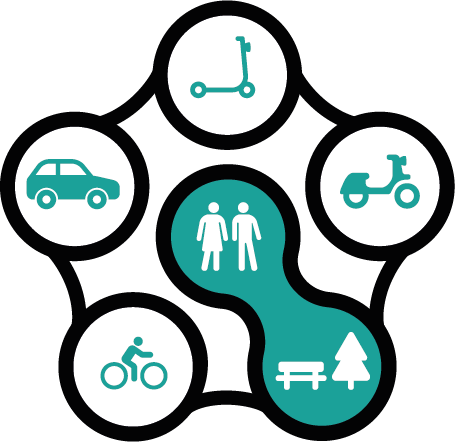
Mo.Hub
The cooperative research project Mo.Hub aims to develop mobility stations in co-creation with citizens, mobility service providers as well as politics and administration in order to contribute to sustainable urban mobility and participatory design of climate-friendly public spaces.

ULTIMOB
In view of the climate crisis, the Austrian mobility system faces complex challenges: Increasing traffic, urban sprawl and consumer-oriented lifestyles are causing more and more climate-relevant gases. Further, there are numerous barriers that stand in the way of the implementation of innovative sustainable mobility offers. A radical rethink is therefore required in many areas. ULTIMOB is concerned with advancing the turnaround in mobility, creating necessary new mobility offers and combining them with existing solutions in a meaningful way.
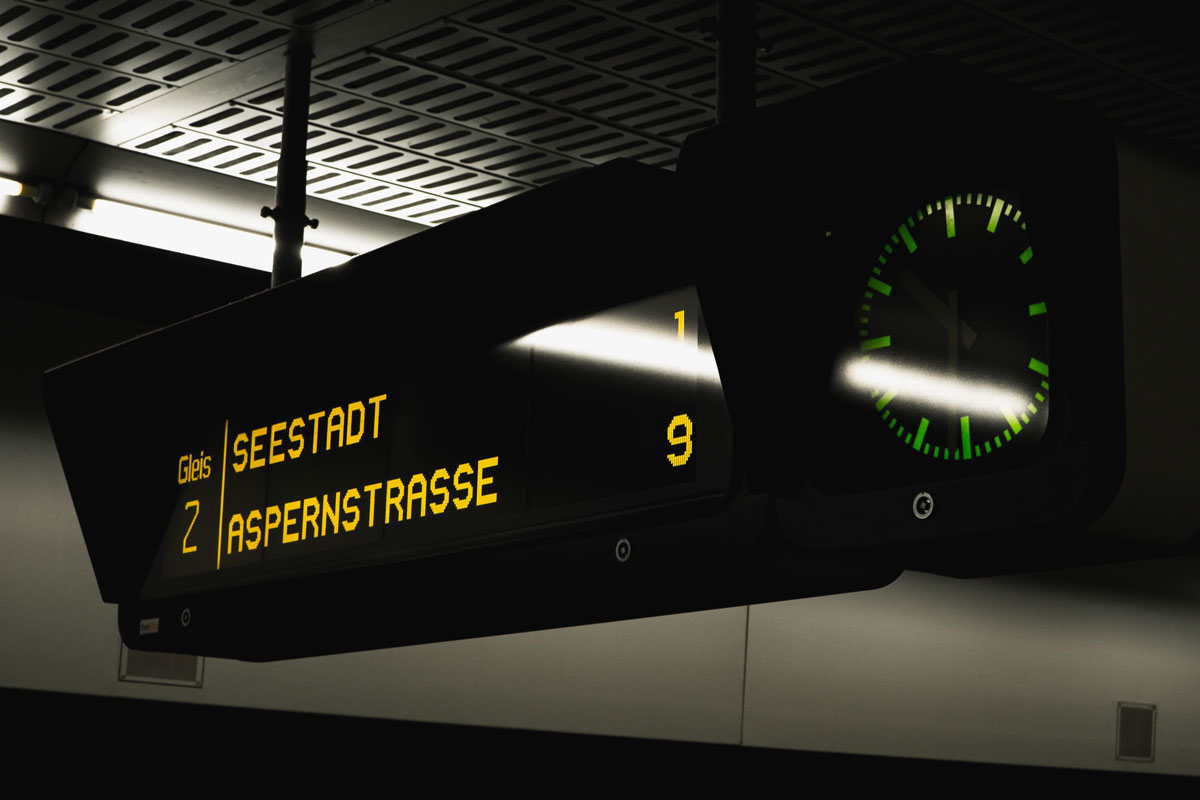
MyFairShare
MyFairShare is a European research project with partners from 5 countries focusing on the improvement of accessibility.
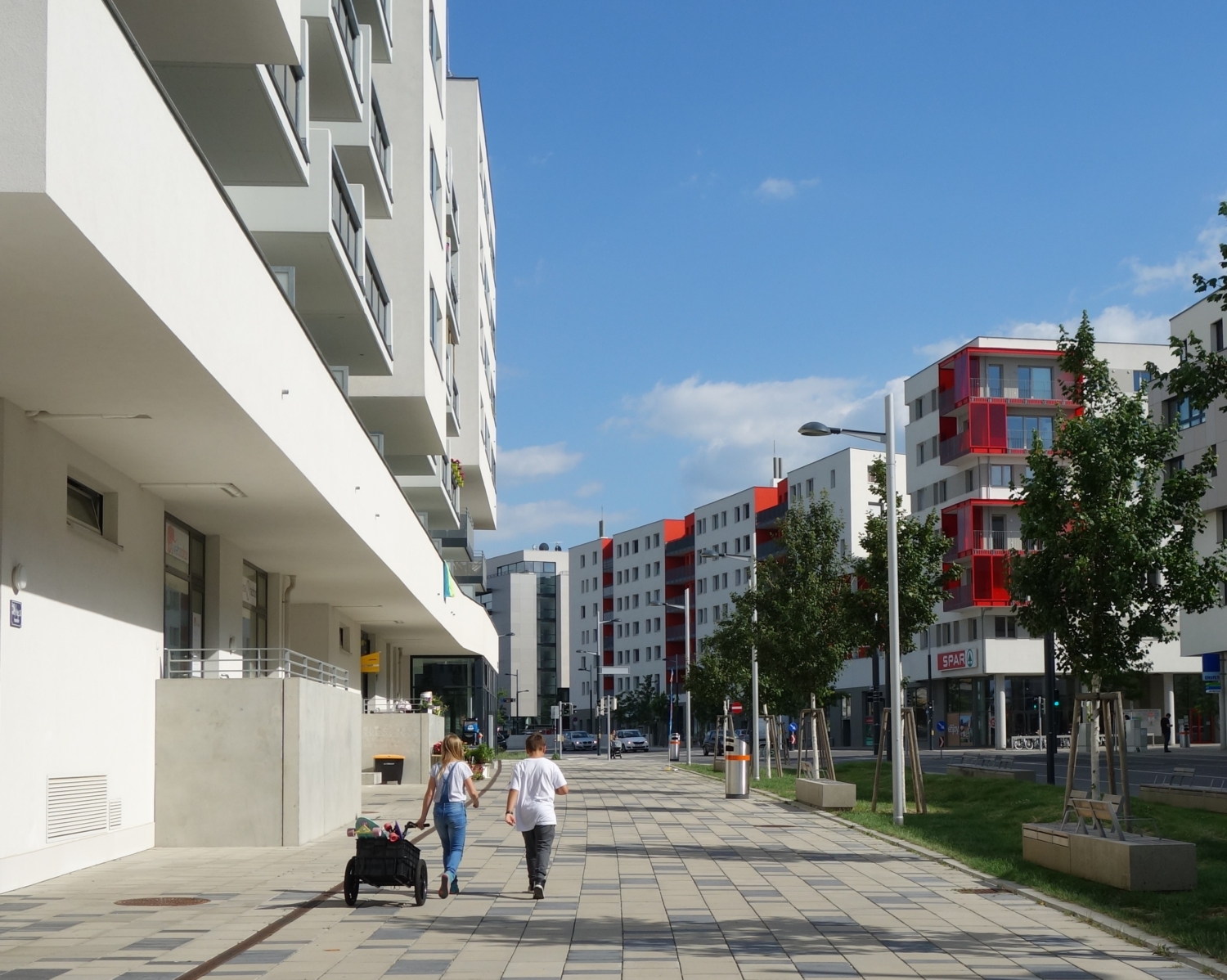
Action research on child mobility
Seestadt offers particularly good conditions for active forms of mobility, both due to the design of the public space and the semi-public open spaces as well as the complementary mobility offers. Within the framework of a participatory mini-study, the qualities and potentials are to be understood more precisely from the children’s point of view. Together with the Neighbourhood Management and children of elementary school age, research will be conducted.

Urban Art and Green
Looking at artworks can have positive effects on personal wellbeing and has been reported to reduce stress. In this project we will look more closely at the attributes of artworks and investigate what qualities of a piece lead to perceived and measurable well-being state in test subjects.
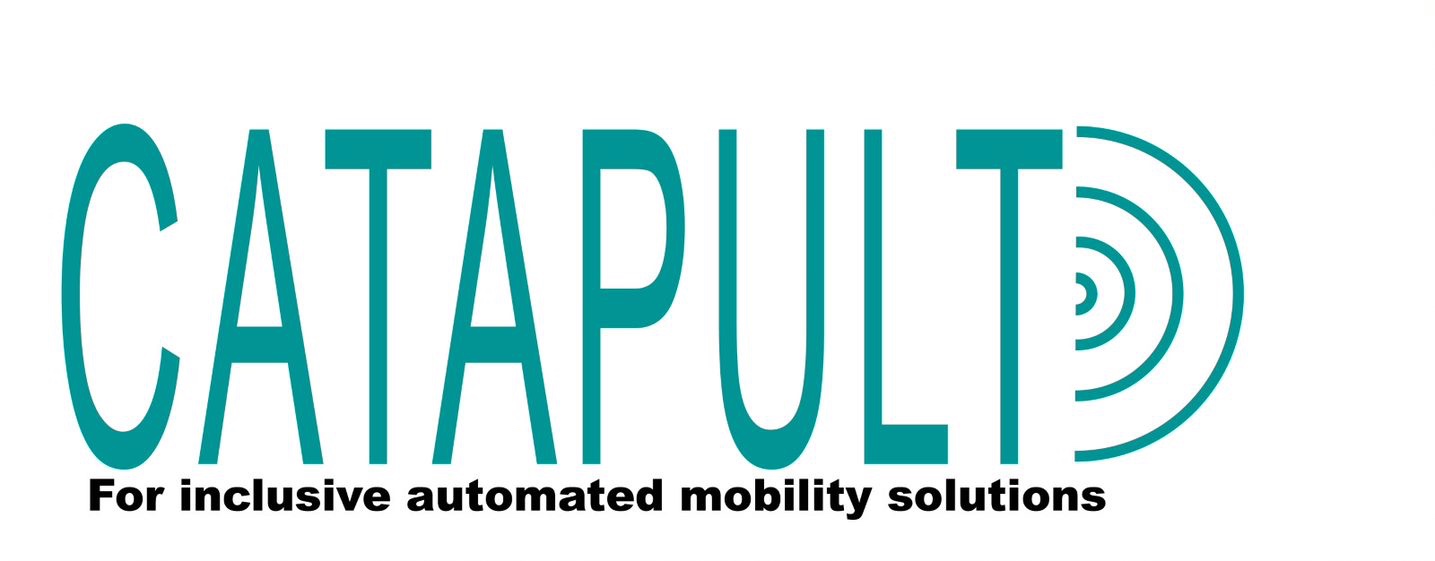
Catapult
The European research project CATAPULT focuses on vulnerable road users and aims to develop recommendations for policies on how future automated mobility services can become inclusive.
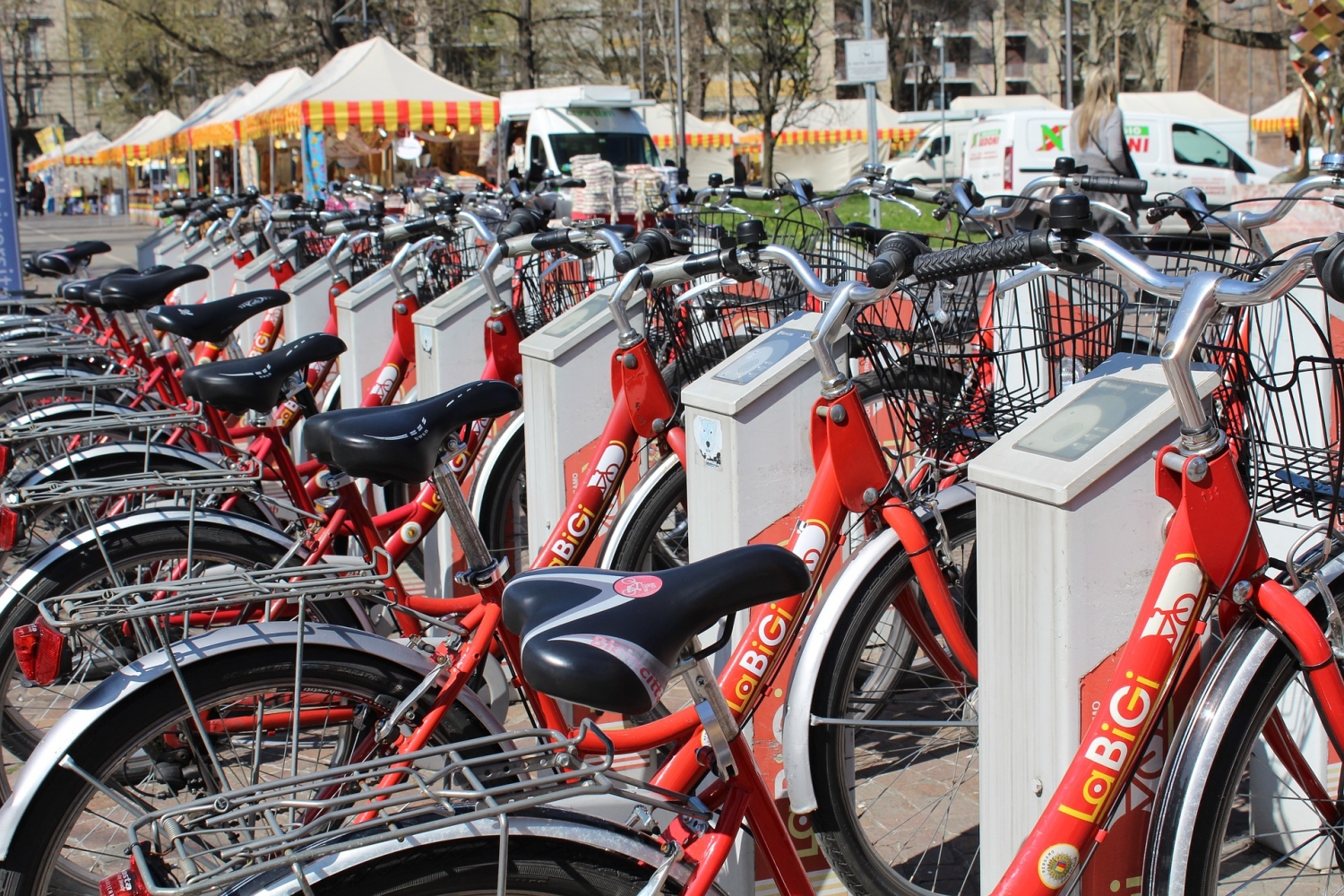
ReNaMo – Law: Obstacle, Basis and Accelerator for Transformation Processes in Sustainable Mobility
ReNaMo is funded by the Austrian Climate and Energy Fund through the “Sustainable Mobility in Practice” programme. Being embedded in the aspern.mobil LAB, the project sets out to analyse the existing legal framework on the basis of innovative mobility case studies.
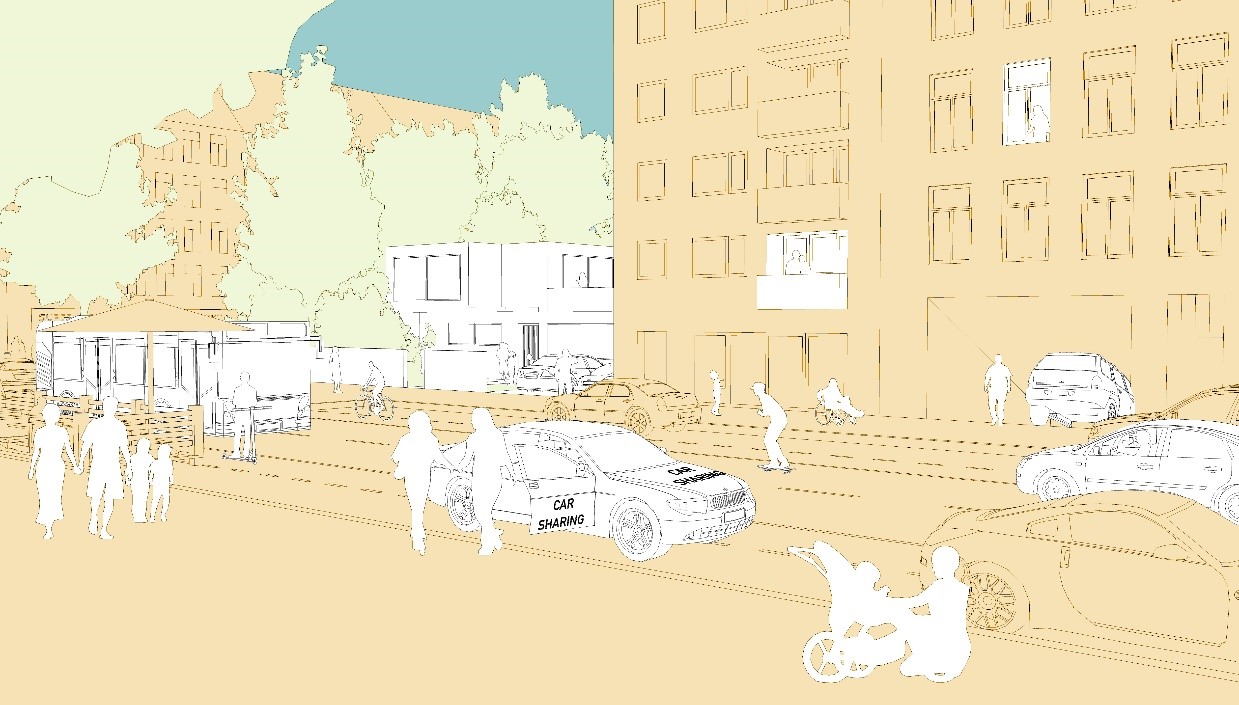
New Mobilities of post-traditional communities: Peer to Peer carsharing in rural and urban neighbourhoods
Carsharing in neighbourhoods might be a promising solution not only for urban areas, but also for less populated areas highly dependent on individual cars.
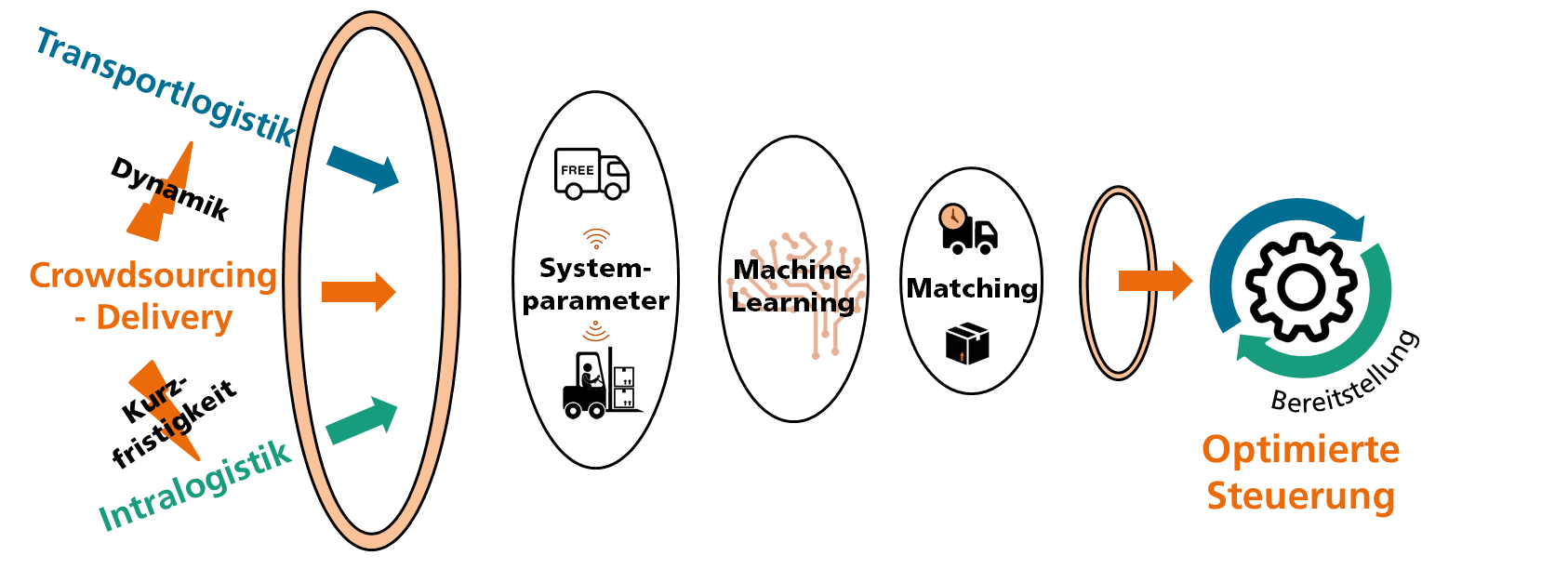
StandPI
Cross-system control of transport and intralogistics for sustainable distribution on the physical internet
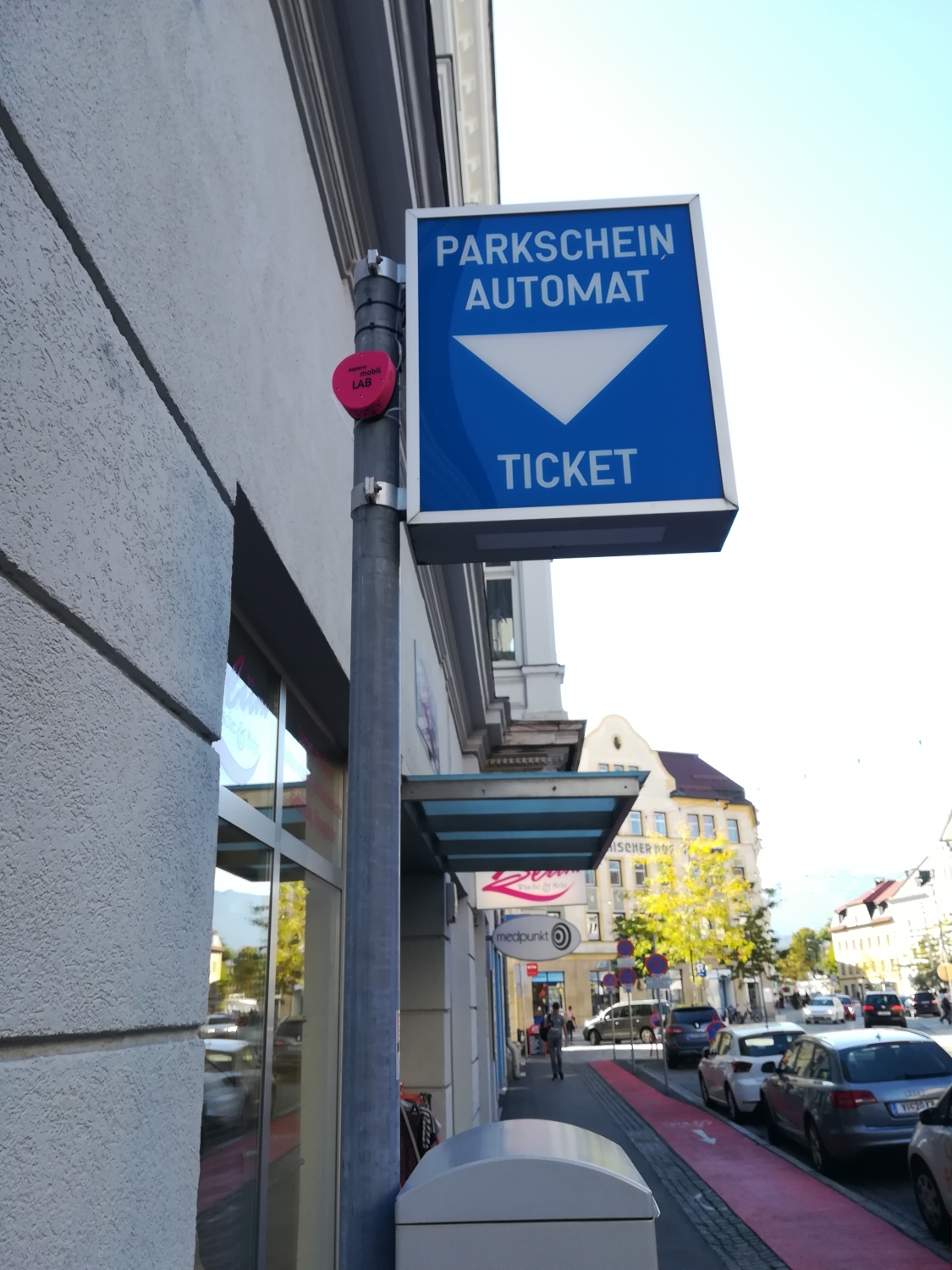
Tactical Mobilism – Interventions for a sustainable mobility culture
The aim of the “Tactical Mobilism” project was to establish and try out cost-effective interventions for the transformation of mobility spaces for a limited period of time.
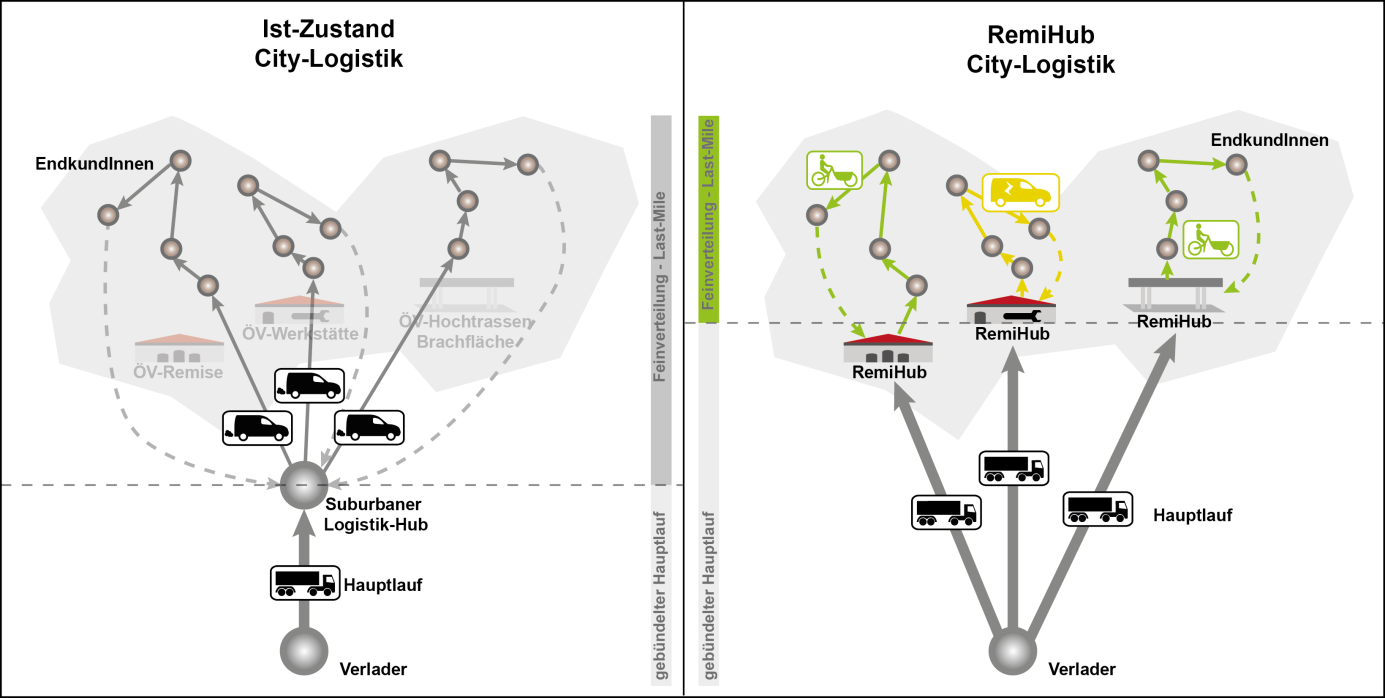
RemiHub
The overall project goals in the RemiHub project are to develop new inner-city logistics areas, to shorten the last mile in the logistics chain and to use the resulting improved framework conditions for the realistic operation of a multimodal logistics chain.
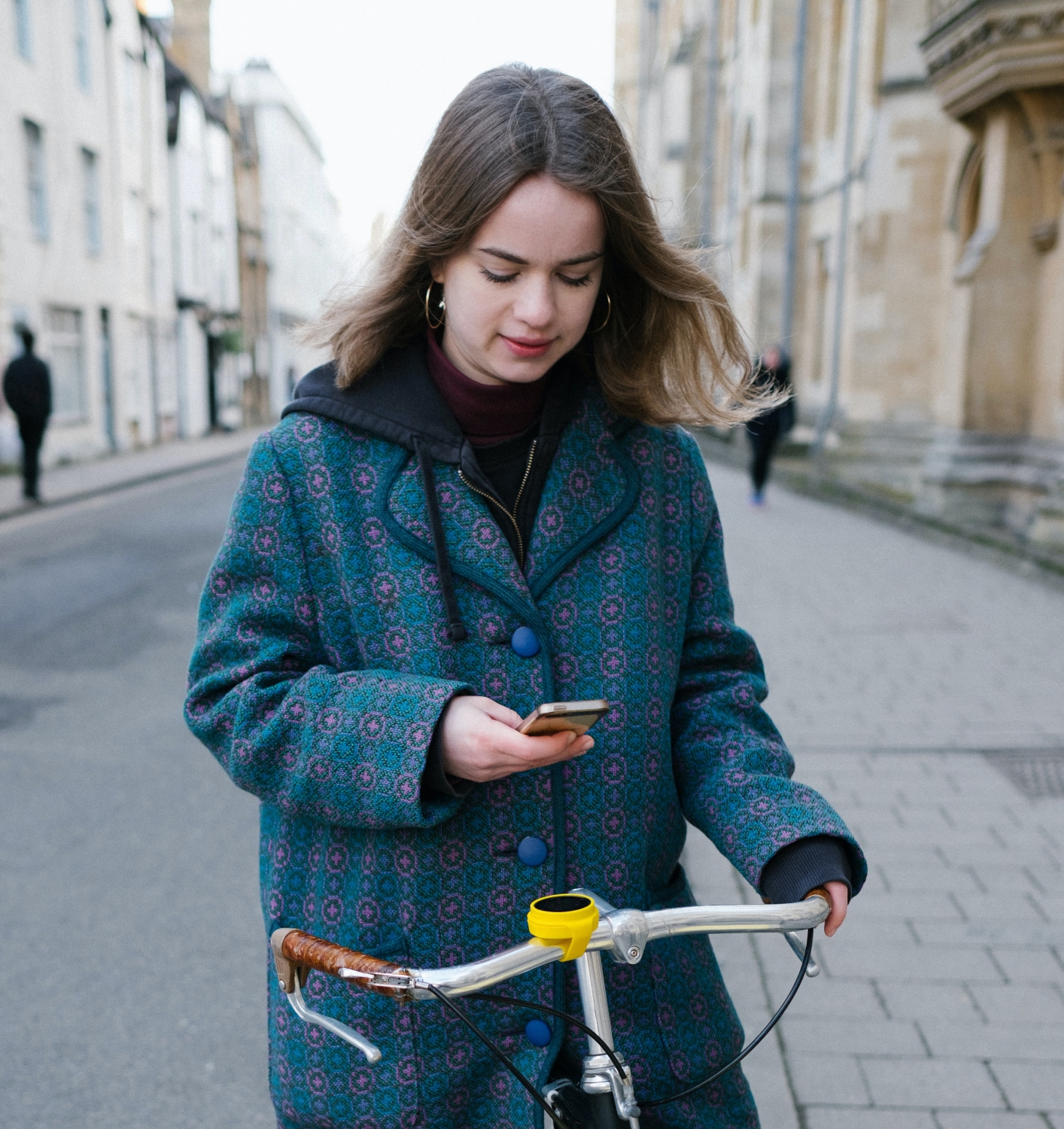
CO2 reduction through MaaS applications
In the framework of the “CO2 accompanying study” project, an investigation is being carried out into which digital journey planner systems or MaaS applications generally make a contribution to CO2 reduction.
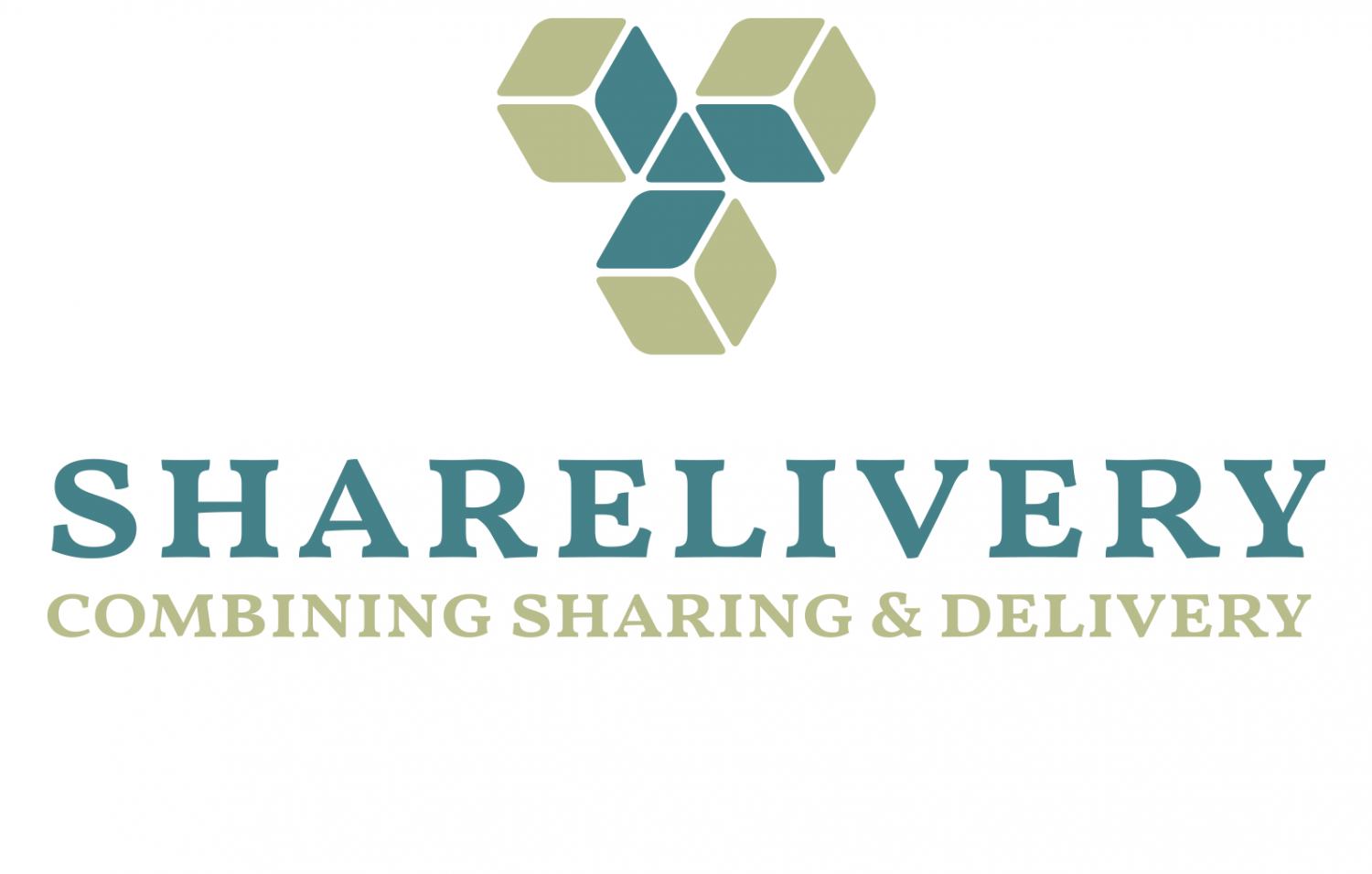
Sharelivery – combination of sharing and delivery services
Sharelivery aims to combine various service offers in the field of shared mobility and logistics (crowd delivery, multimodal transport sharing and ridesharing) at software and hardware level in an overall system.
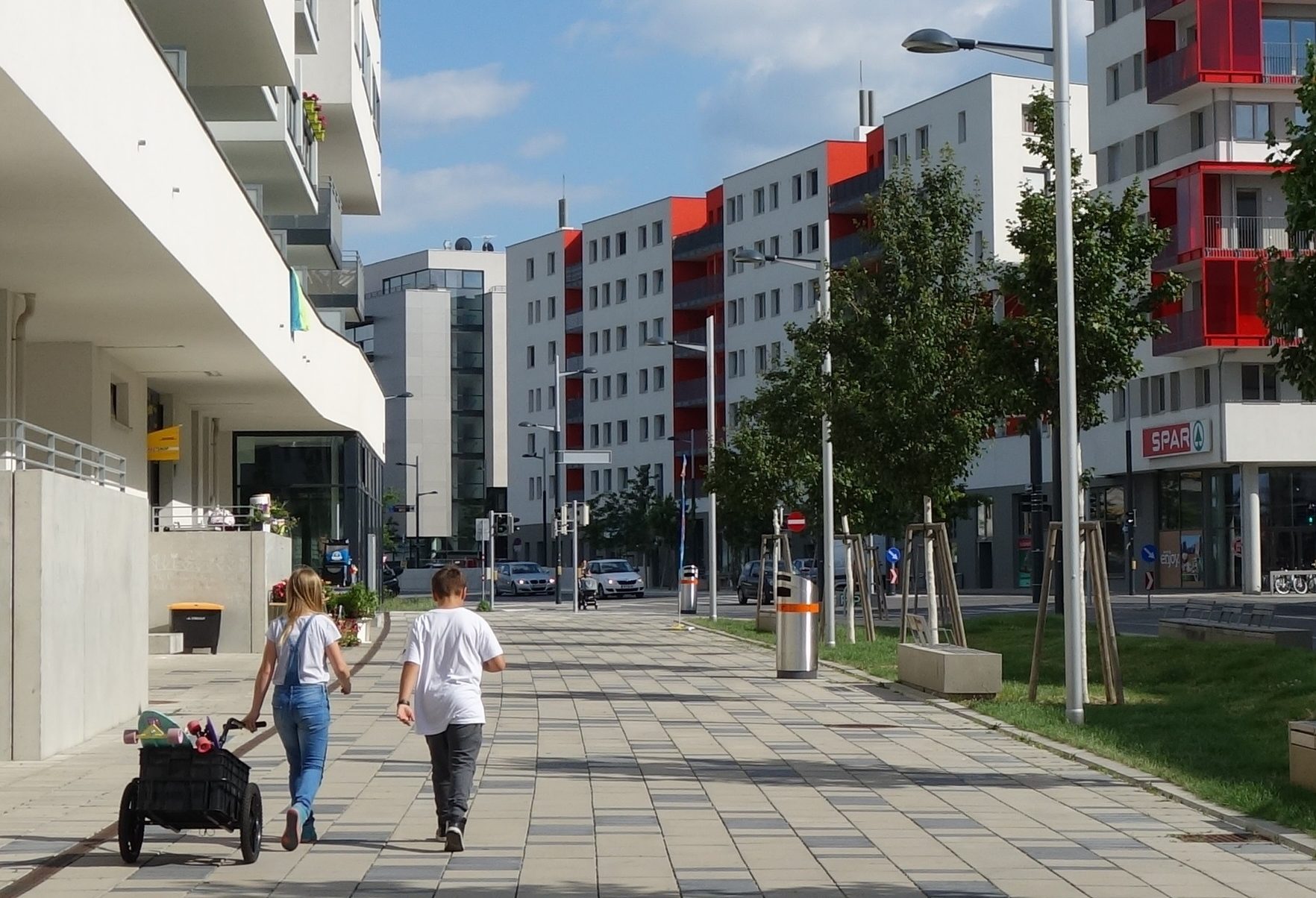
KoopHubs
The aim of this R&D project is to develop a city-wide, two-tier logistics concept with City Distribution Centres as well as micro and Grätzl hubs for the distribution of urban small consignments through cross-sectoral business cooperation.
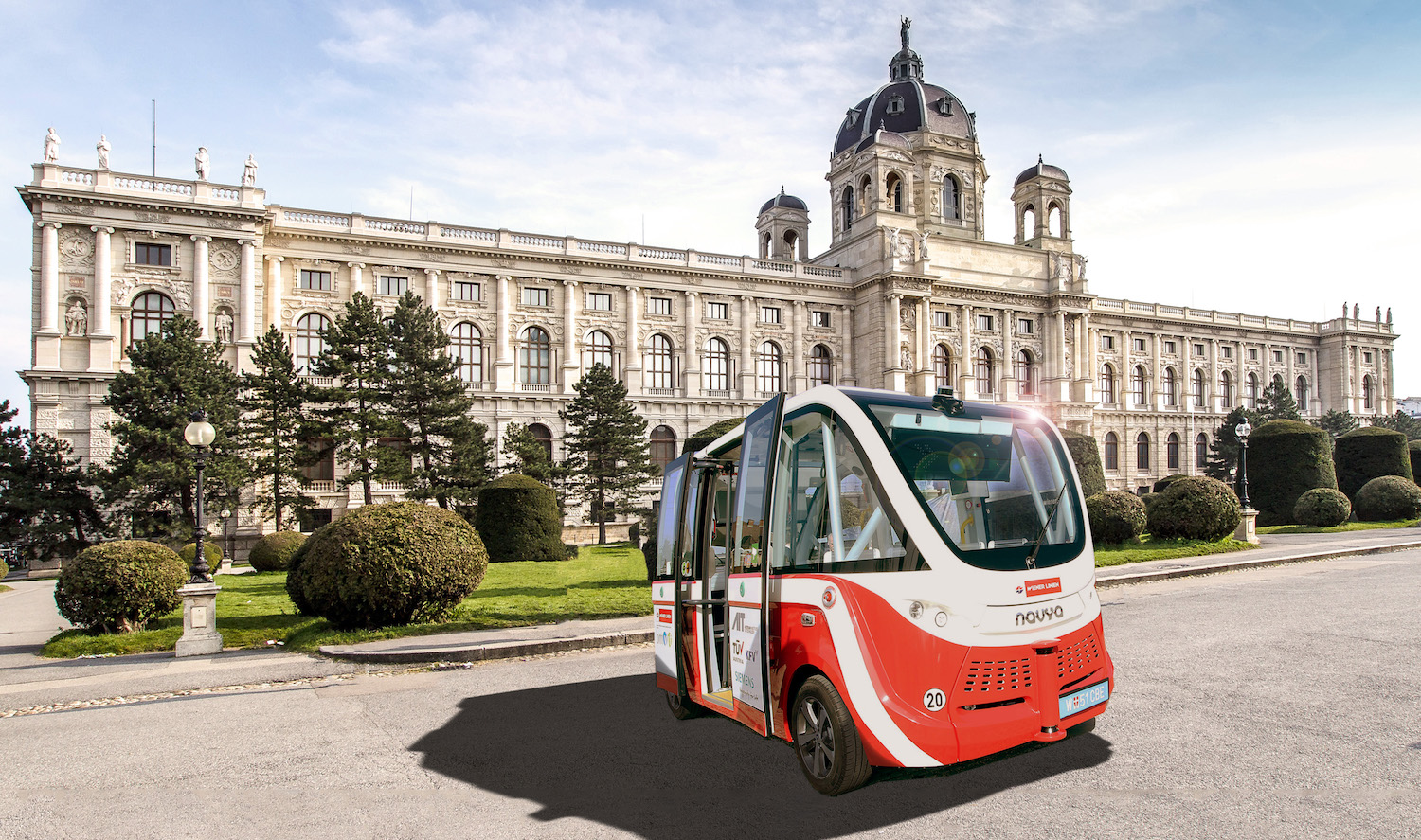
auto.Bus – Seestadt
The aim of “auto.Bus – Seestadt” is to test two self-driving electric minibuses in aspern Seestadt in regular service. From autumn 2018, the minibus models “AUTONOM SHUTTLE” from the company “Navya” will be on the road, in which ten people can sit next to an operator. Passengers will be transported on the bus from the spring of 2019.
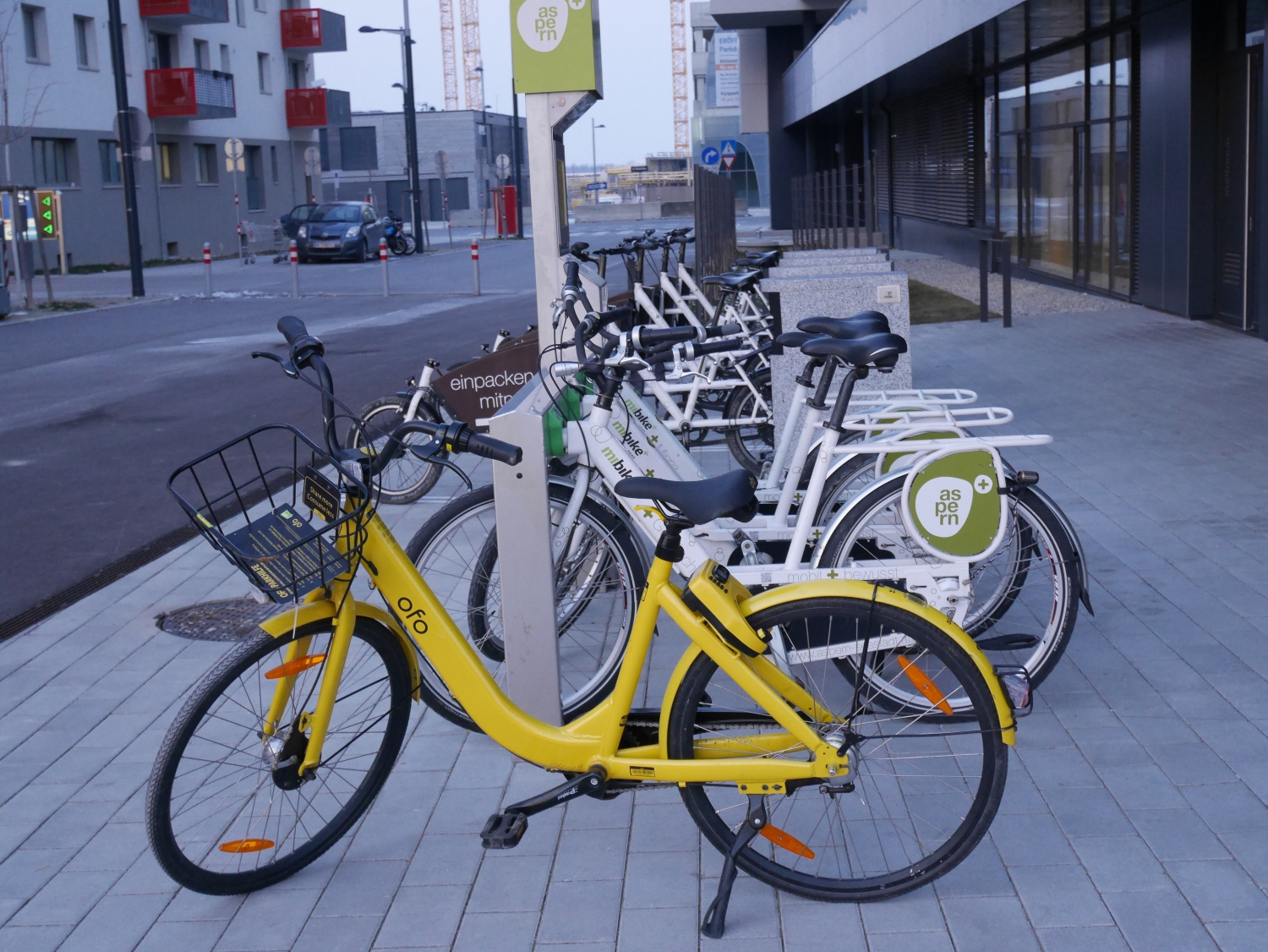
Shared Mobility and Traffic Safety
The study commissioned by the Austrian Road Safety Board looks at shared mobility from the perspective of different vehicles (car sharing, bike sharing, pedelec sharing, e-scooter sharing) and actors (operators, users, external experts) and uses a diverse range of methods (literature research, quantitative online survey, focus groups, expert interviews). The aim is to show the importance of road safety for usage patterns and non-usage motives, and to identify the factors that operators of shared mobility services can address in order to improve safety-relevant aspects.
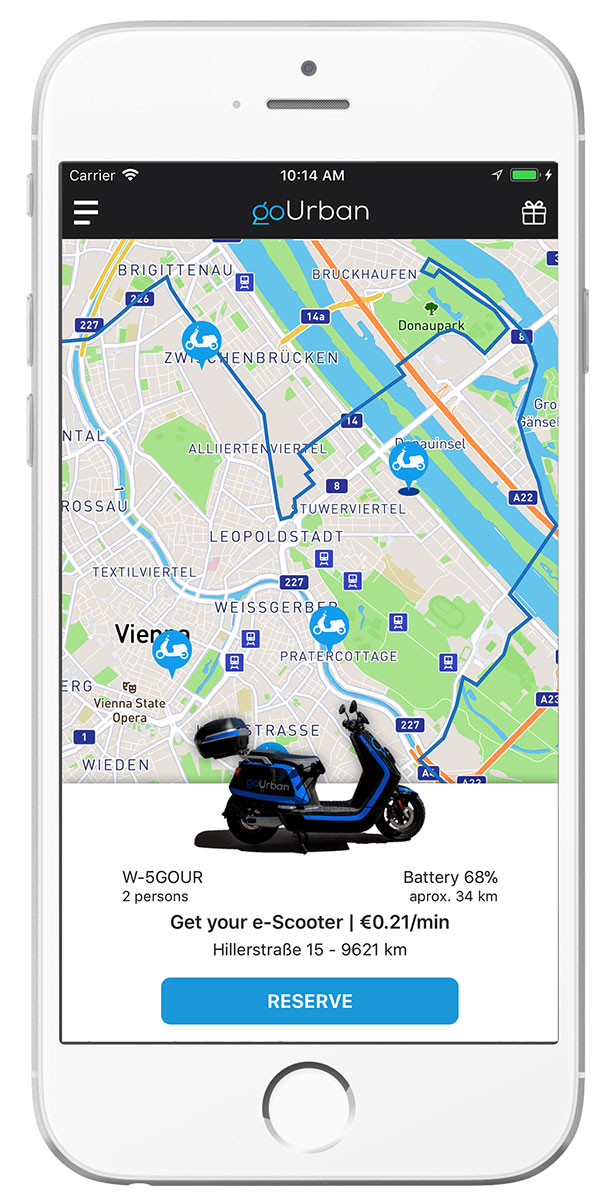
REBUTAS
The aim of REBUTAS is to improve the utilisation of free-floating mobility sharing services and to optimise the usability of the booking systems.
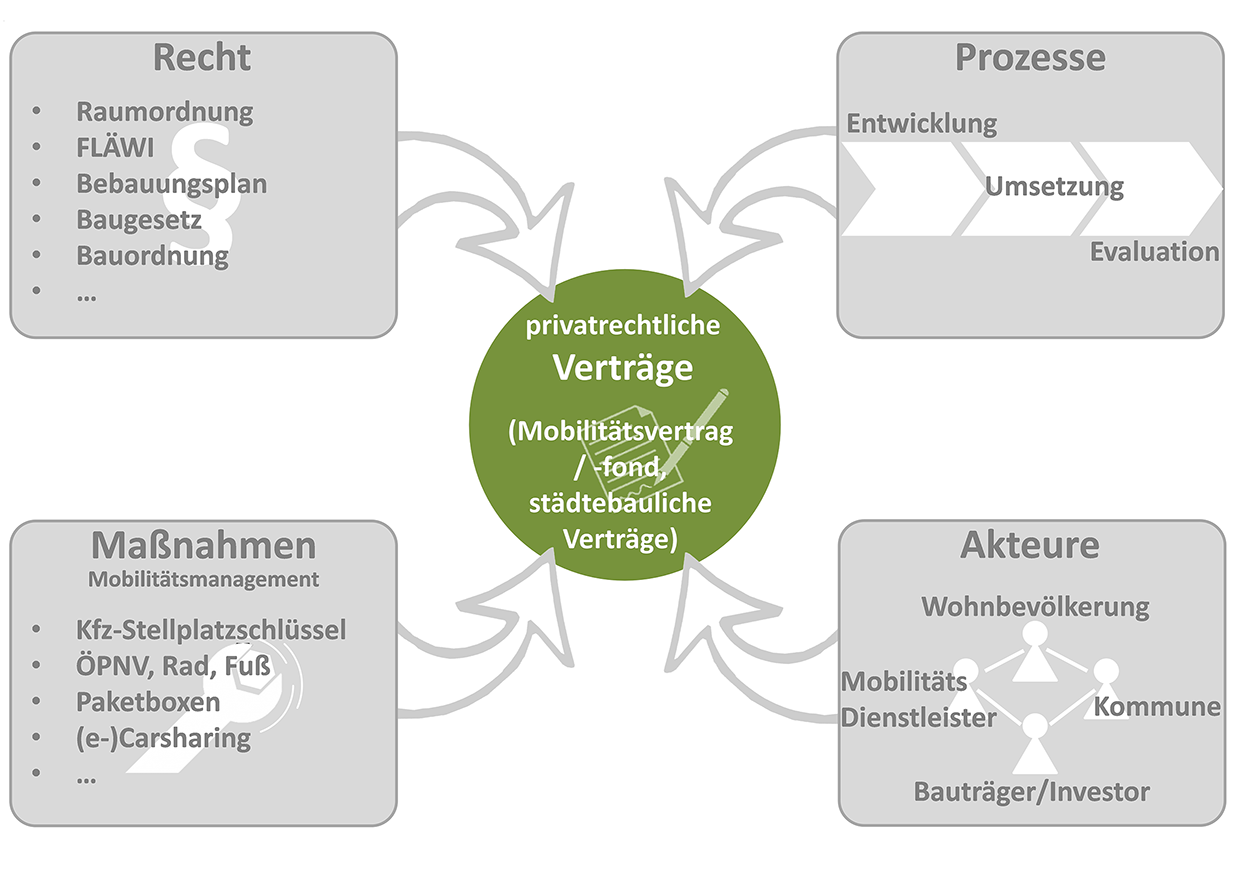
Urban MoVe
In this research project, an interdisciplinary consortium uses best-practice analyses and implemented national practical examples to investigate the extent to which private-law contracts are suitable as municipal planning and control instruments for mobility in residential locations.
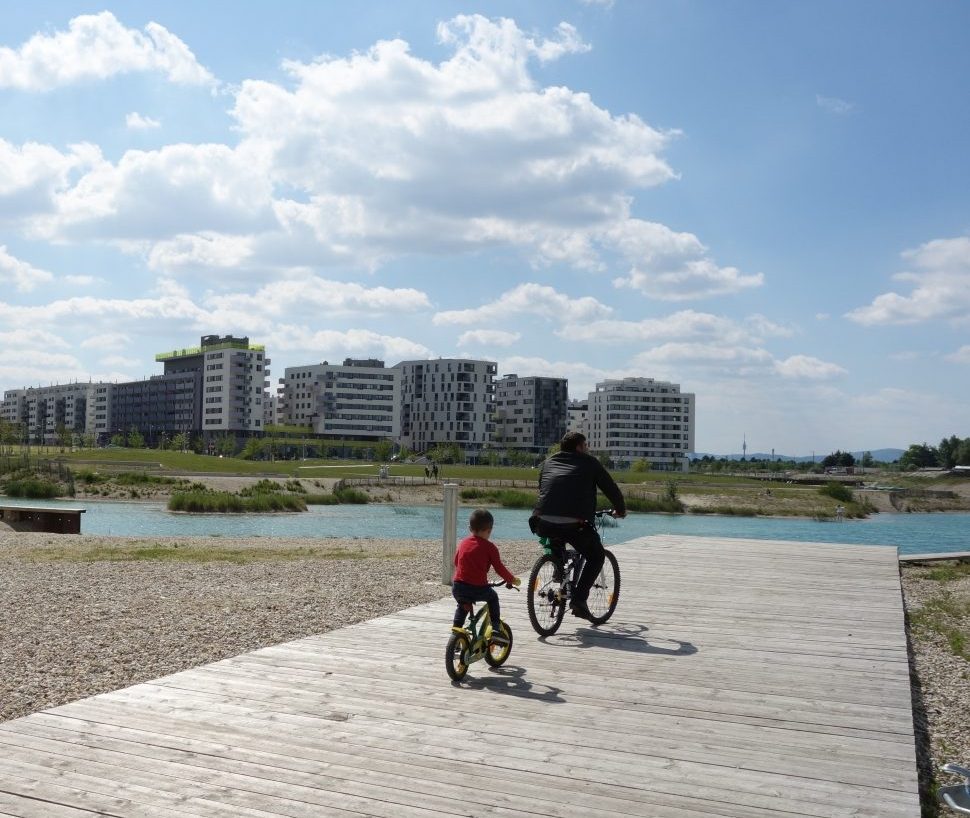
CHANGE! Mobility change in people’s minds
The aim of the project is to develop a “deeper understanding of the possible and effective steering mechanisms in relation to influencing mobility patterns”.

PHOBILITY ACTIVE
PHOBILITY ACTIVE aims to enable people with phobia, anxiety and/or obsessive-compulsive disorder or anxiety that develops due to depression to participate in social life on an equal footing and to maintain or regain their Active Mobility for as long as possible.
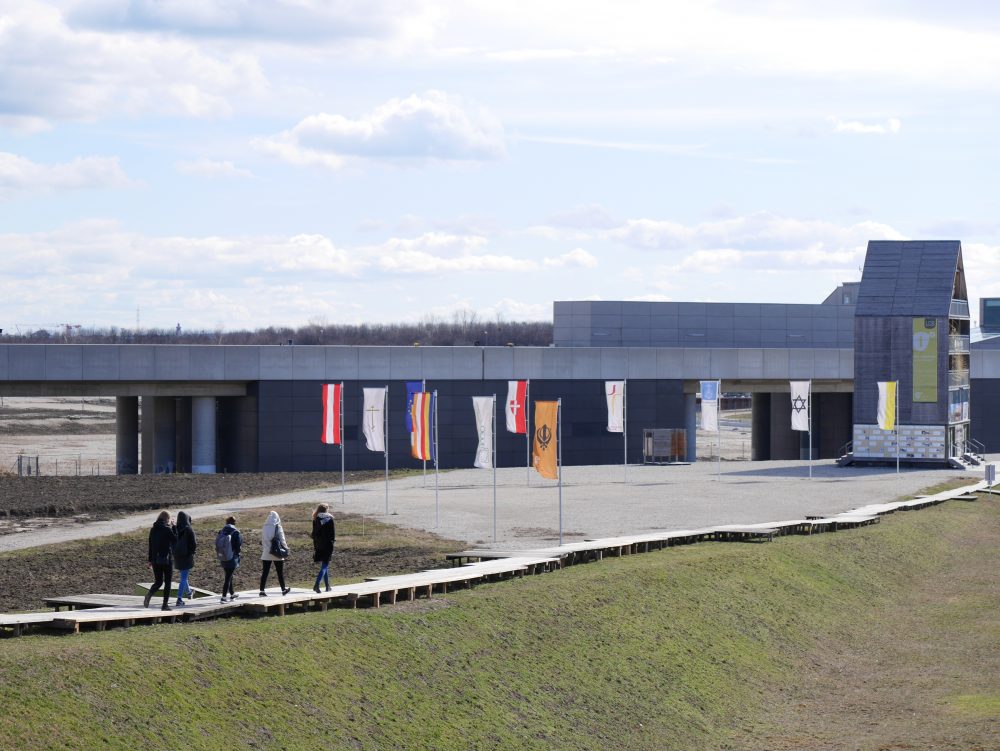
Walk & Feel
The aim is to improve the conditions for pedestrians and thereby increase the quality of stay in urban areas. This can only be done through a high-quality database for assessing the quality of the footpath (walkability). New technological developments such as sensors make it possible to record and map physiological reactions in certain situations in order to identify perceptions and emotions.
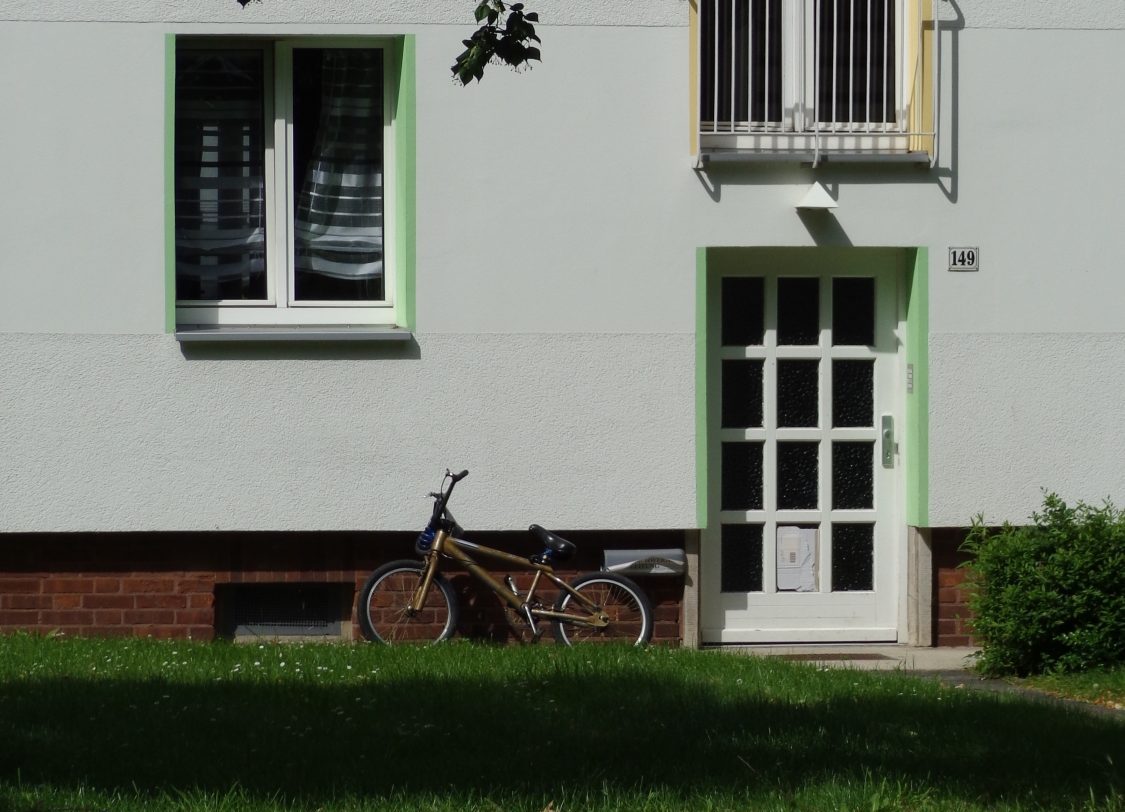
Live well & travel flexibly
Within the framework of this project, we record factors of residential location choice and preferences in the choice of means of transport of households in Vienna and Lower Austria. Good public transport connections, an attractive living environment, pedestrian routes and bicycle infrastructure influence mobility behaviour. We would like to better understand decision-making processes regarding the choice of residential location and means of transport.

Pocobo
Private motorised transport is responsible for a whole range of negative impacts not only on climate and the environment, but also on human health. We want to raise awareness of air pollution among city dwellers by encouraging cyclists to collect local air quality data while cycling through the city.

LARA Share
The collaborative research project LARA Share aims to integrate cargo bikes more strongly into commercial and private goods transport. To this end, businesses and private individuals who use a motor vehicle for short, inner-city journeys with low transport volumes are to be motivated to switch to the use of cargo bikes.
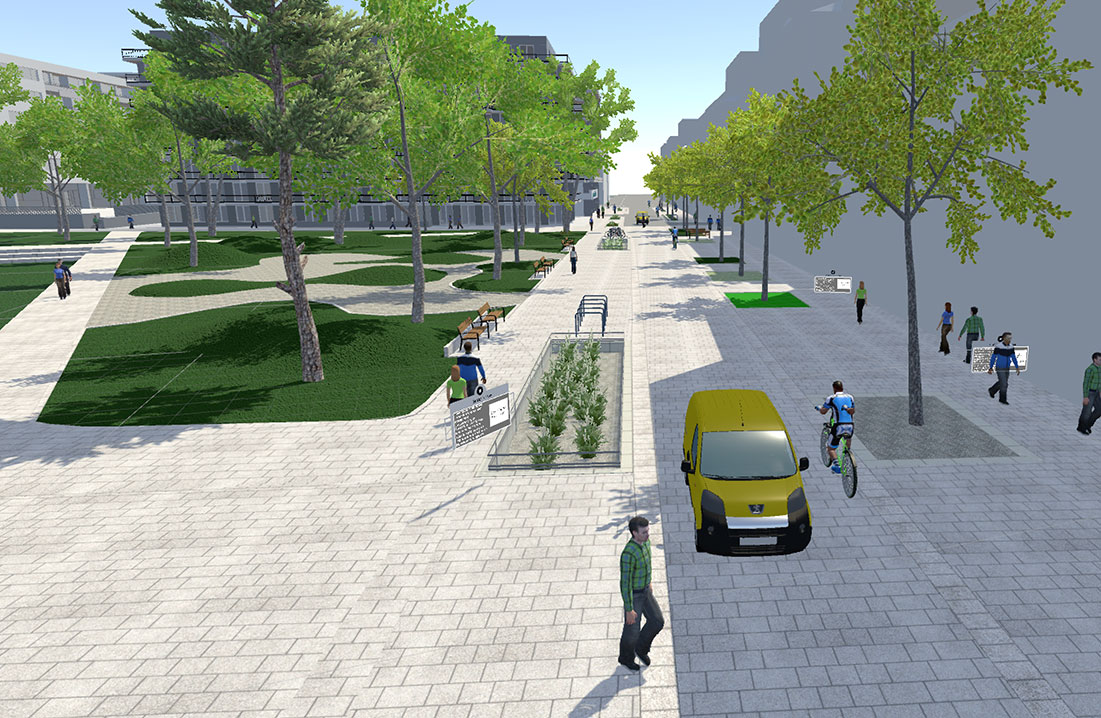
VR-planning
In VR-Planning (we’re planning), new innovative possibilities for improved participatory planning are explored and real-life application examples are used to show how virtual and augmented reality (VR and AR) can improve cooperation between planners from different disciplines, politics and citizen participation.
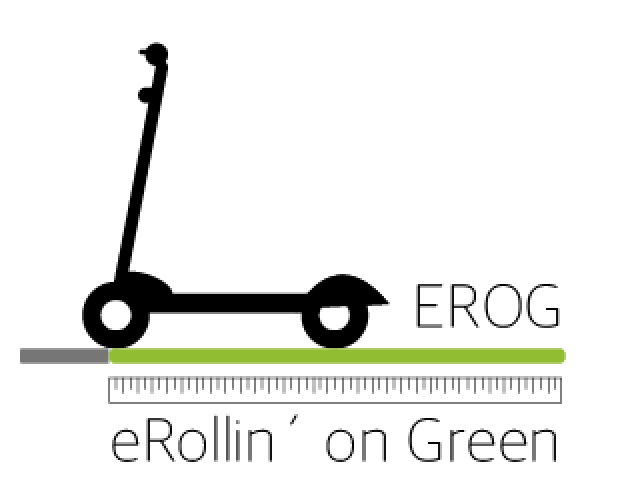
EROG eRollin‘ on Green
The pilot study eROG – eRollin’on Green in cooperation of the C!S – Center for Informatics and Society with the aspern.mobil LAB aims at identifying potentials of activating research and participation in the context of urban mobility labs.
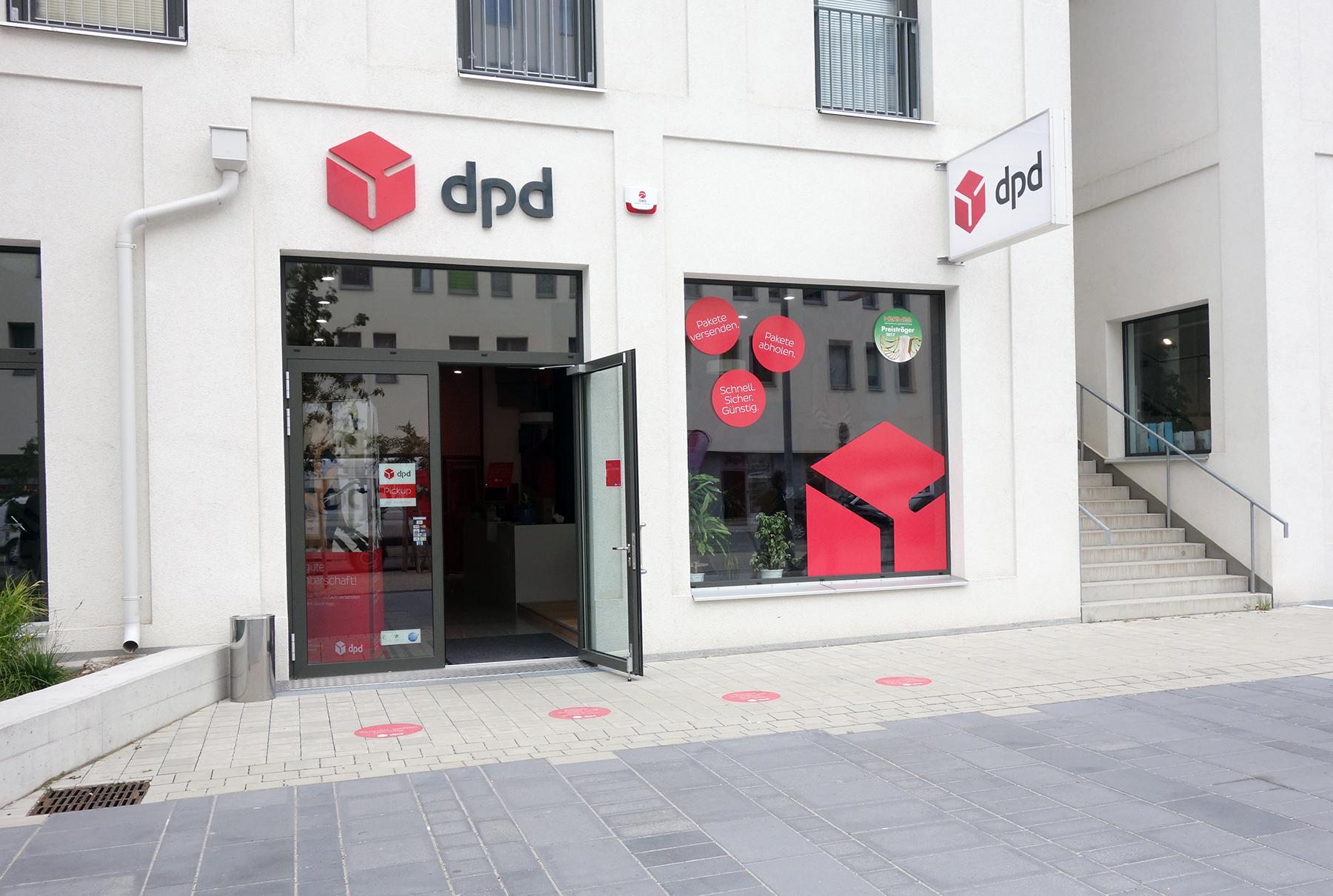
LOGISTICS CONCIERGE
An economically sustainable concept for the operation of micro-hubs is not feasible under the current framework conditions in the courier, express and parcel service sector; it is necessary to jointly investigate the future requirements here in order to subsequently be able to develop new services at, in and around micro-hubs.
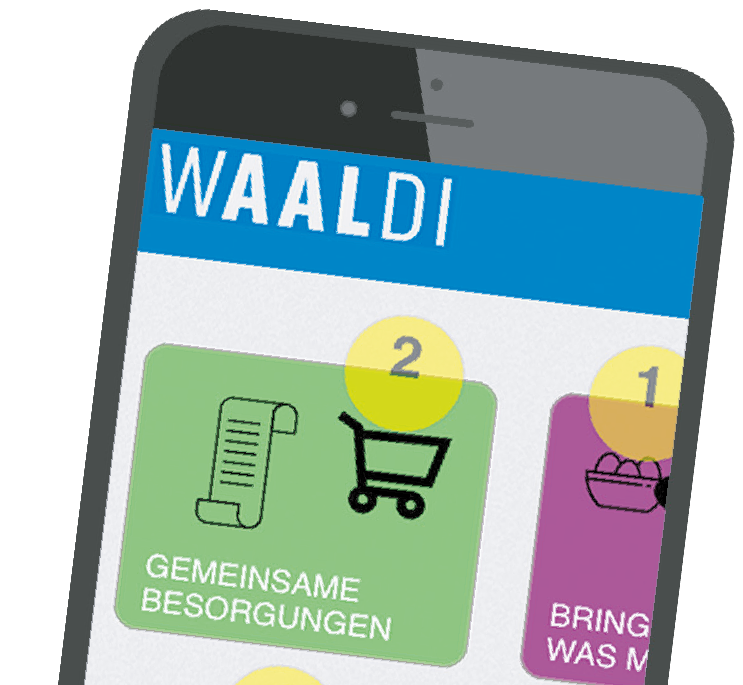
AAL.mobi cargo
Ambient Assisted Living (AAL) has developed into a strongly expanding segment and enables older but still active people to manage their daily lives independently for as long as possible. AAL communities also provide ideal conditions for crowd logistics and shareconomy.
